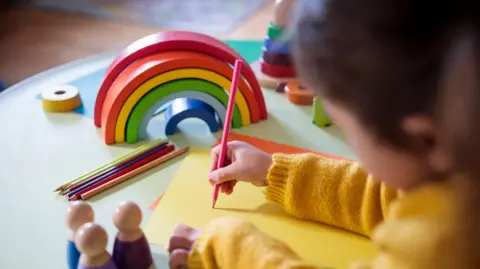In the wake of the devastating Air India Flight 171 crash in June, where 260 lives were lost, an association representing Indian pilots has voiced strong support for the flight crew. The Indian Commercial Pilots' Association (ICPA) stated that the pilots performed their duties faithfully, underscoring the difficulty of the circumstances they faced and rejecting any unfounded allegations of misconduct, including suicide.
"But to suggest pilot suicide without verified evidence is a gross violation of ethical reporting and disrespects the profession," the ICPA emphasized in a statement released Saturday.
A preliminary investigation report, released recently, found no blame directed at the pilots. Instead, it noted that shortly after take-off, the fuel-control switches on the Boeing 787 Dreamliner had moved to a "cut-off" position, cutting fuel supply to the engines. Cockpit recordings revealed one pilot queried why the cut-off occurred, to which the other insisted he did not perform that action. However, it remains unclear who manipulated the switches, which are designed to prevent unintentional activation.
Following the issuance of this report, media discussion and social media conversations have sparked speculation about potential pilot negligence. The ICPA voiced their deep disturbance over such narratives, calling the insinuation of suicide "reckless" and asserting that it trivializes the gravity of the situation for the victims' families. They underscored that such claims have no basis at this stage, urging all parties to refrain from drawing conclusions until the comprehensive investigation concludes.
Pilot unions have expressed surprise at the lack of transparency surrounding the investigation. The Airline Pilots' Association of India (ALPA) has raised concerns regarding how the inquiry is progressing and echoed the need for further clarification on safety measures related to the fuel control switches, which have a history of issues traced back to advisories issued by the US Federal Aviation Administration.
ALPA's president asserted the investigation seems to be biased against the pilots, calling for their inclusion in oversight. Following the revealing report, the Indian Civil Aviation Minister urged caution against premature conclusions, emphasizing the dedication and professionalism of India's aviation personnel.
The fatal incident, which occurred on June 12, resulted in 241 deaths among the 242 passengers aboard, with one miraculous survivor and 19 fatalities reported on the ground. The investigation, which includes input from numerous expert organizations, is expected to release a final report in one year's time.
"But to suggest pilot suicide without verified evidence is a gross violation of ethical reporting and disrespects the profession," the ICPA emphasized in a statement released Saturday.
A preliminary investigation report, released recently, found no blame directed at the pilots. Instead, it noted that shortly after take-off, the fuel-control switches on the Boeing 787 Dreamliner had moved to a "cut-off" position, cutting fuel supply to the engines. Cockpit recordings revealed one pilot queried why the cut-off occurred, to which the other insisted he did not perform that action. However, it remains unclear who manipulated the switches, which are designed to prevent unintentional activation.
Following the issuance of this report, media discussion and social media conversations have sparked speculation about potential pilot negligence. The ICPA voiced their deep disturbance over such narratives, calling the insinuation of suicide "reckless" and asserting that it trivializes the gravity of the situation for the victims' families. They underscored that such claims have no basis at this stage, urging all parties to refrain from drawing conclusions until the comprehensive investigation concludes.
Pilot unions have expressed surprise at the lack of transparency surrounding the investigation. The Airline Pilots' Association of India (ALPA) has raised concerns regarding how the inquiry is progressing and echoed the need for further clarification on safety measures related to the fuel control switches, which have a history of issues traced back to advisories issued by the US Federal Aviation Administration.
ALPA's president asserted the investigation seems to be biased against the pilots, calling for their inclusion in oversight. Following the revealing report, the Indian Civil Aviation Minister urged caution against premature conclusions, emphasizing the dedication and professionalism of India's aviation personnel.
The fatal incident, which occurred on June 12, resulted in 241 deaths among the 242 passengers aboard, with one miraculous survivor and 19 fatalities reported on the ground. The investigation, which includes input from numerous expert organizations, is expected to release a final report in one year's time.






















